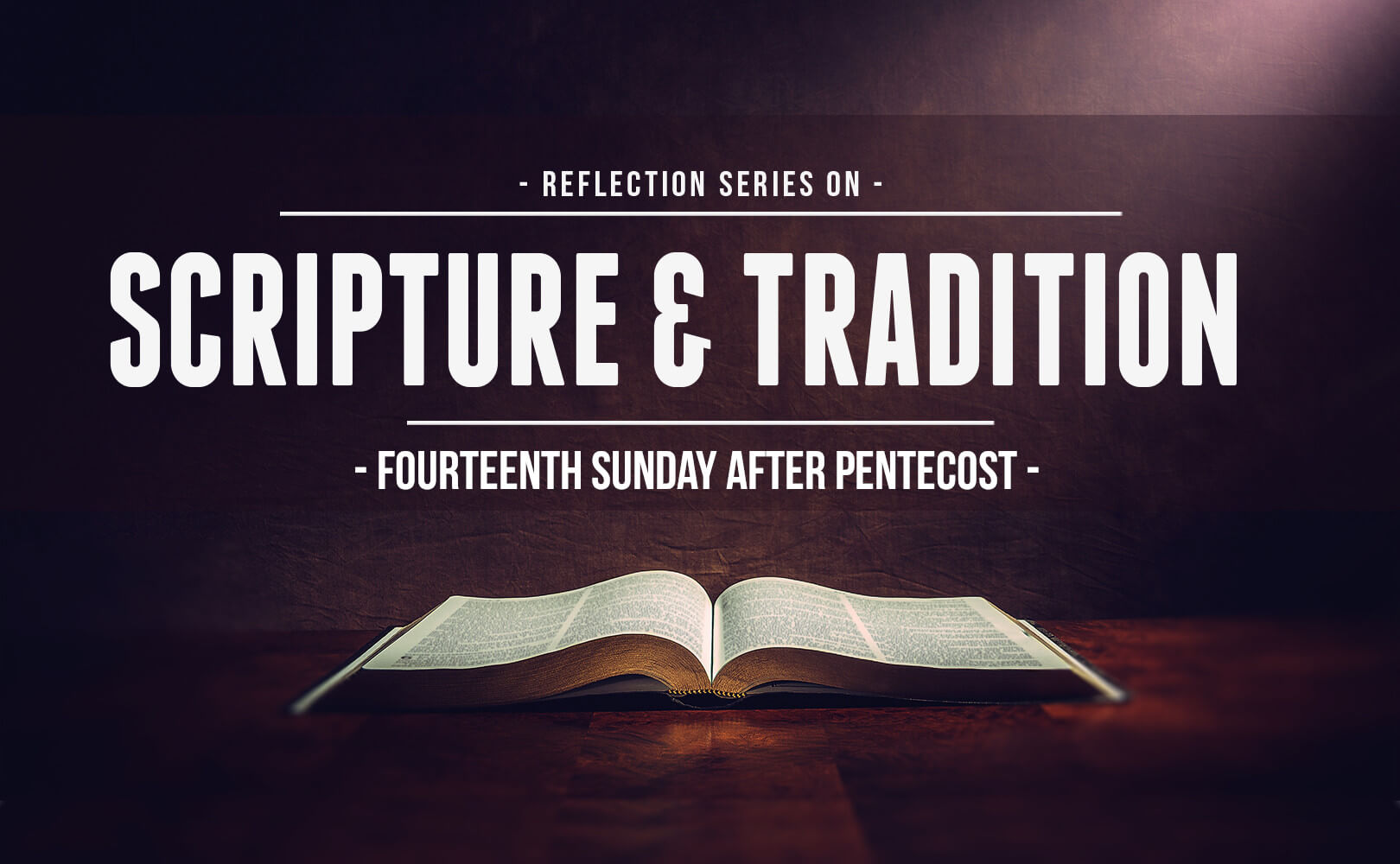Epistle: Galatians 5:16-24
Gospel: Matthew 6:24-33
Keep, we beseech Thee, O Lord, Thy Church with perpetual peace; and because the frailty of man without Thee cannot but fall, keep us ever by Thy help from all things hurtful, and lead us to all things profitable to our salvation.
– From the Collect for the Fourteenth Sunday after Pentecost
Sunday’s readings pose both a warning and a potential for reward. The warning? We must put nothing before Christ. The reward? Peace, joy, and freedom from anxiety.
In Sunday’s Epistle, St. Paul is writing to the Galatians, warning them to avoid the “works of the flesh” such as fornication, idolatry, and drunkenness. Although the Apostle’s list of sins is long, he doesn’t try to list every “work of the flesh.” As St. Jerome notes, “It would have been a long task to enumerate all the works of the flesh and make a catalog of vices, so Paul has wrapped this all up in one phrase: ‘and the like.’” (Epistle to the Galatians 3.5.19-20). St. Paul is telling the Galatian Christians (and us) that one who lives by the Spirit (cf. Gal 5:16) should do all he can to avoid such things.
In Sunday’s Gospel Our Lord also issues a warning. He tells his followers, “No man can serve two masters. For either he will hate the one, and love the other: or he will sustain the one, and despise the other. You cannot serve God and mammon” (Mt 6:24). “Mammon” is a Greek transliteration of an Aramaic word that signifies wealth and possessions. The term derives from a word that means “believe” or “trust”, and means “that in which one places his trust.” In other words, the very word suggests that we tend to place our trust in wealth and possessions. It is this trust of material possessions that Jesus is warning his disciples against. For if you trust in your possessions, you will not trust in God. To be Christ’s disciple, you must put all your trust in Him and Him alone.
But Sunday’s readings are not just warnings against wrong behavior and attitudes; they also promise rewards for those who heed them.
After giving his list of “works of the flesh,” St. Paul then tells the good news for those who walk by the Spirit: they will experience joy, peace, patience, and other fruits of the Holy Spirit. Too often people stereotype religion as just a list of “don’ts”: don’t do this, don’t do that. It makes God out to be a cosmic killjoy who wants to take away all our fun. But the truth is that by denying ourselves the works of the flesh—which only can give at best fleeting pleasure—we can receive far better rewards, even in this life. The Saints who suffered great persecution and even martyrdom were still joyful and at peace, because they had the fruits of the Spirit.
Our Lord also tells of the reward for those who give their lives completely to him. They will be like the birds of the air, free from the anxieties and burdens of this world. This doesn’t mean that Christ takes away those burdens; it means that he helps to carry them. We have a choice: we can pursue earthly pleasures or we can pursue Christ. Only one will lead to lasting happiness. As Christ tells us, “Seek ye therefore first the kingdom of God, and his justice, and all these things shall be added unto you” (Mt 6:33). What will you seek?


